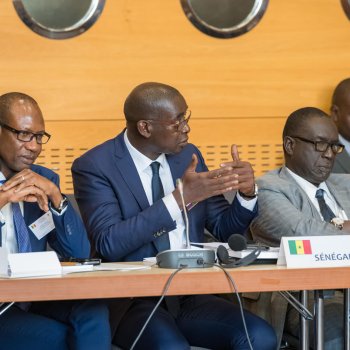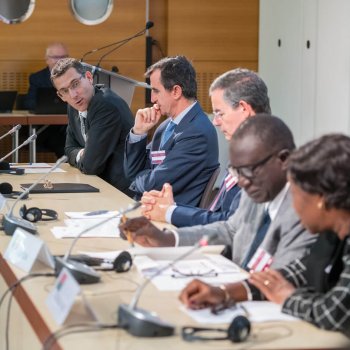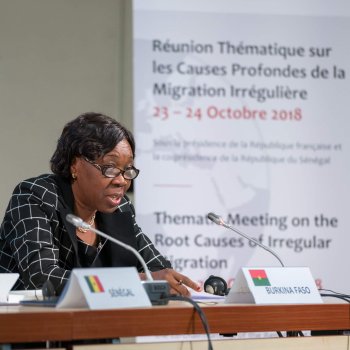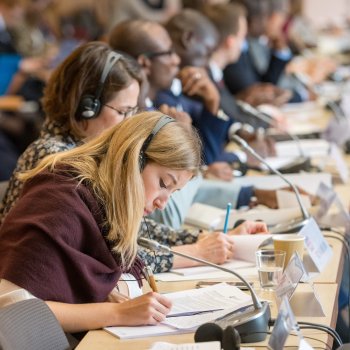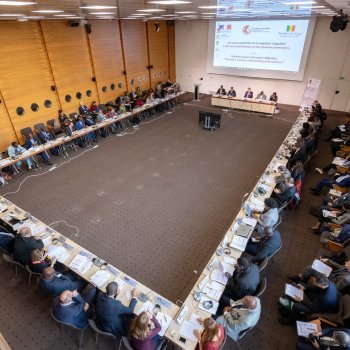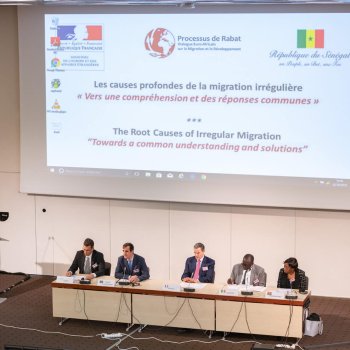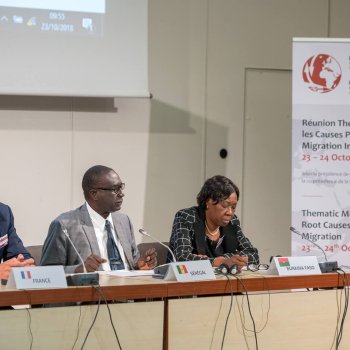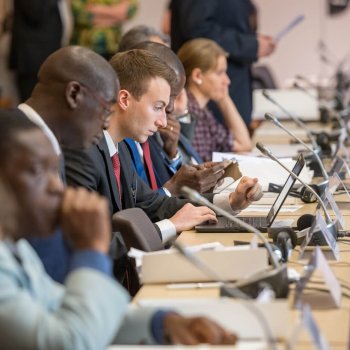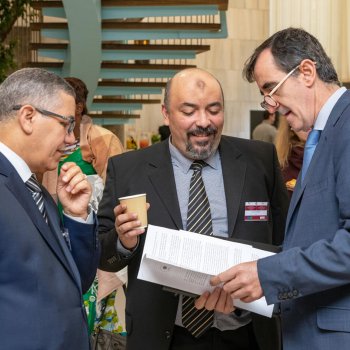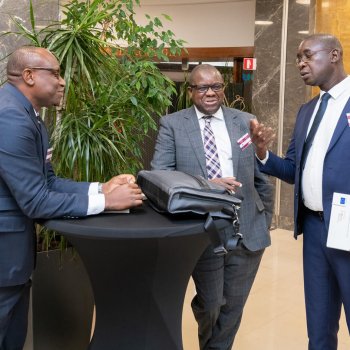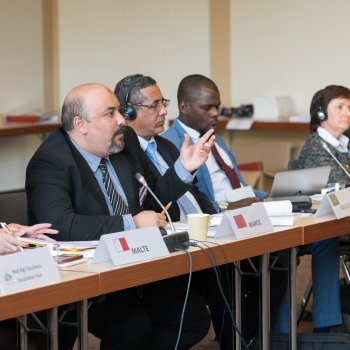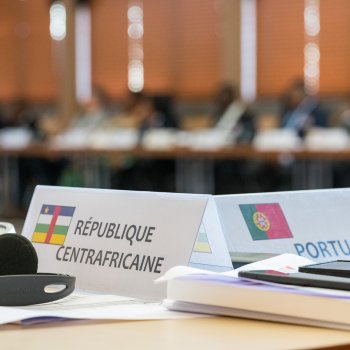Paris, 23-24 October 2018, hosted by France and co-chaired by Senegal.
The root causes of irregular migration and forced displacement are a priority topic in the international cooperation between Africa and Europe. In light of the importance and complexity of the topic, the Rabat Process partners organised a Thematic Meeting exclusively focusing on the root causes of irregular migration in the Rabat Process region. The participating partner countries and stakeholders closely examined this multi-faceted topic and worked towards a common understanding and solutions. The meeting resulted in joint recommendations and conclusions by the co-chairs.
General objective of the meeting
“To gain a shared understanding of the root causes of irregular migration in the Rabat Process region, in order to facilitate the development of suitable and appropriate policies, capable of responding to the identified structural factors.”
“Unpacking” root causes to grasp their complexity
Around 80 representatives gathered in Paris, including representatives of the Rabat Process partner countries and partner organisations, as well as external experts. These external experts included representatives of civil society organisations and international organisations, researchers, members of the diaspora and representatives of the private sector.
The thematic meeting aimed to “unpack” the question of root causes and irregular migration, which is not the outcome of a single determinant. To do so, the meeting was framed by research- and practice-oriented presentations and provided opportunities for the participants to exchange their views in plenary sessions and working groups. The root causes of rural migration and migration and urban planning, as well as an in-depth study on the concept of root causes of irregular migration in the Rabat Process

“State of the Art”: an in-depth study on the root causes of irregular migration
In order to gather specific data to guide the debates, the Secretariat of the Rabat Process had commissioned an in-depth study on the root causes of irregular migration in the region of the Rabat Process, prepared in May 2018. The study “State of the art” by Lucie Bacon and Nelly Robin reviews existing work on the subject of “root causes” of “irregular migration”. The study suggests a need to rethink the concepts underpinning the current global approach taken by the Rabat Process on migration issues.
Strategic Background: from Valletta to Marrakesh
The thematic meeting contributed directly to the strategic objectives currently guiding the Rabat Process. In 2015, the Rabat Process partners explicitly recognized the importance of addressing
Two of the 23 specific actions of the Marrakesh Action Plan provide the framework for the thematic meeting and study on the root causes of irregular migration:
Action 4:
Analyse the root causes and make practical recommendations (...) with a view to improving the incorporation of these issues into policy development.
Action 5:
Promote a more systematic inclusion of (these) issues (...) into socio-economic development strategies and programmes at national level, and into development cooperation programmes, whilst also promoting ownership of existing regional normative frameworks.
Resources:
Final report
• Final report of the Thematic Meeting on the root causes of irregular migration
• French version: Rapport final de la Réunion thématique sur les causes profondes de la migration irrégulière
Study
• Summary: “State of the art – The root causes of irregular migration in the region of the Rabat Process” - a study conducted by Lucie Bacon (Migrinter) and Nelly Robin (Institut de
• Full study: „State of the art. The root causes of irregular migration in the region of the Rabat Process“ – a study conducted by Lucie Bacon (Migrinter) and Nelly Robin (Institut de
Meeting documents:
• Concept Note / Note
Meeting conclusions
• Conclusions of the Co-Chairs / Conclusions de la co-présidence
Presentations in English:
• “Factors of migration and urbanization in Africa”, Prof. Joseph Teye and Prof. Mariama Awumbila, Centre for Migration Studies, University of Ghana
• "Youth employment in the agricultural sector", Mohamed Lamine HAIDARA, Responsible for the Youth Entrepreneurship Platform in Agribusiness
• "The global state of food and agriculture 2018", Rodrigo de Lapuerta, Director of the FAO Liaison Office with the European Union and Belgium
• "Migration and urban planning. Creating sustainable policies that support the inclusion of migrants", presentation by UCLG Africa (United Cities and Local Governments of Africa)
• "EU Emergency Trust Fund for Africa", presentation of the EUTF program (European Commission)
Presentations in French:
• "Facteurs de migration et d'urbanisation en Afrique", Prof. Joseph Teye et Prof. Mariama Awumbila, Centre d'études sur les migrations Université du Ghana
• “L’emploi des
• “La situation
• “Migration et planification urbaine. Créer des politiques durables
• “Fonds Fiduciaire d'Urgence pour l'Afrique”, communication du programme FFU (Commission européenne)


